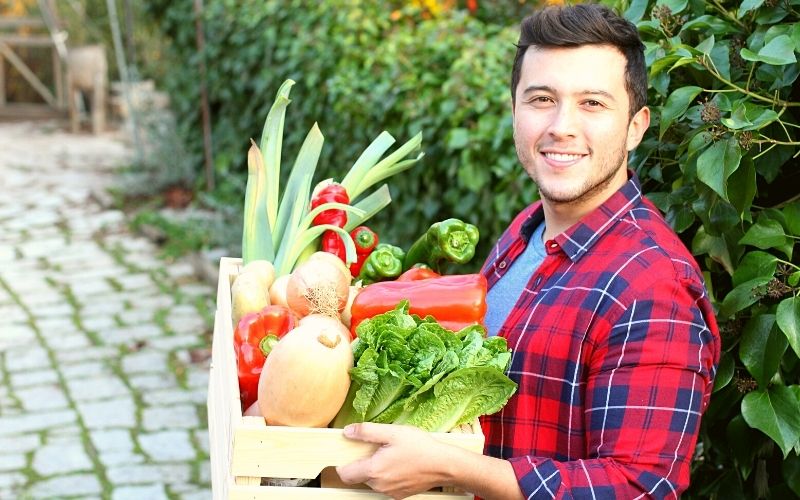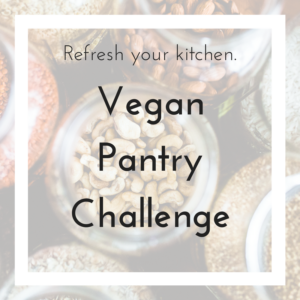For the past 10 years, I have been an on and off subscriber of veggie boxes via a Community Supported Agriculture (CSA) scheme or another. Yet again this winter, I ask myself: should I sign up for a CSA box this year? Are CSA boxes worth it? The answer isn’t straightforward and, in this article, I will break it down for you so you have a good base to make your own decision. I’m going to go beyond the obvious questions to discuss some of the deeper issues pertaining to CSA veggie boxes.
Keep reading below or listen to this blog post as a podcast episode:

What are CSA boxes all about anyway?
Community Supported Agriculture (CSA) is way to connect farmers and consumers, while stabilizing farmer income and distributing the risks inherent to farming. In general, the idea is to split the prospective harvest of a given farm into a number of “shares” and to pre-sell those shares to consumers before the season starts. For example, 200 buyers would each buy one $500-share in January to receive each a weekly box of vegetables tentatively worth $25 for 20 weeks, say from May to October.
By paying in advance for the produce that they will consume in the warmer months, “shareholders” support the cashflow of farmers, since many of their expenses occur long before money from produce sales comes in. (For example, buying seeds, repairing equipment, paying workers’ salaries as they do the soil preparation and seeding, etc.) In addition, shareholders take on part of the risks: in the event of crop failure or uneven crop success, they may get less produce for their money, or more of certain veggies than they would have chosen to.
In return for the early cash commitment and risk taking, shareholders have direct access to very fresh produce, possibly at a better price than what they would pay at the supermarket or at the farmers’ market.
That’s the theory. Now, from my perspective as a health-conscious cook who tries to have a smaller environmental footprint, here are my thoughts on the pros and cons of CSA boxes. Spoiler alert: I think CSA boxes are worth it, but maybe not for the usual reasons.
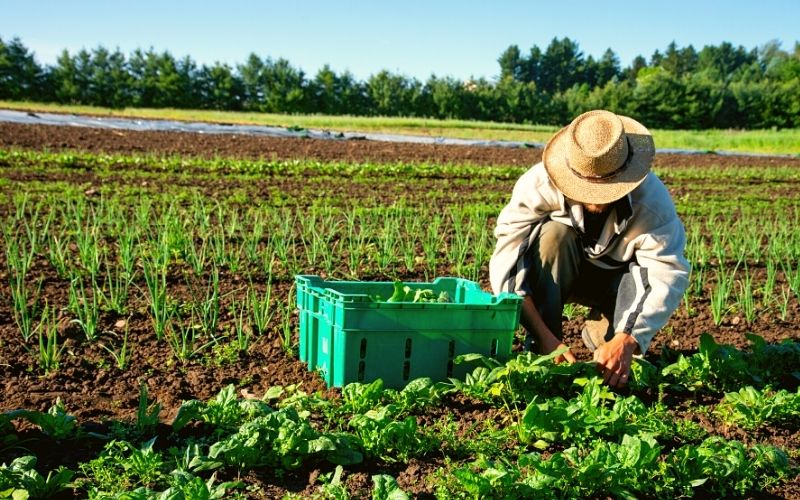
Benefits of CSA boxes
Typical articles about the benefits of CSA boxes for consumers highlight the freshness of produce and reduced price. Of course, that’s great, however I think there are two other benefits we can enjoy as a subscriber that deserve mentioning first.
Supporting and connecting with local agriculture. Doing our part to ensure that there are farmers tending the land, growing vegetables, improving soil, and growing their skills close to our home is the number 1 reason to subscribe to a CSA, in my opinion. We have become accustomed to expecting fully-stocked supermarkets, shelves filled with produce from all over the world, and few of us actually stop to think about where the food is from and how it gets to us. However, as climate disruptions more regularly throw the global food production and distribution system into disarray, we need backup plans closer to home.
Granting farmers autonomy from agriculture industry giants. What we have come to see as conventional farming, that is large-scale growing of commodity crops like corn and soy, requires massive upfront investments for land, equipment, seeds, and chemicals. In many cases, farmers obtain financing or enter other kinds of arrangements with their suppliers of equipment, seeds, and supplies, all corporate agriculture multinationals that must be paid back upon harvest. Those corporations are there to make money for their shareholders, not to provide nutritious food for people. Along the way, they perpetrate the biggest catastrophes of our time: environmental degradation, climate disruptions, and chronic disease. The CSA model, by propping up smaller-scale, produce-growing farms, offers an alternative business model that’s part of the solution.
Eating fresh seasonal vegetables. Short of growing your own produce, becoming a CSA shareholder is the best way to have near-direct access to the freshest veggies there are, hours, or at most a day, after they come out of the ground. As a result, they are more likely to be crunchier and tastier, and possibly have more nutrients (although not necessarily). CSA boxes also get us reacquainted with the seasons: in spring, we eat lots of greens (fill your freezer with pesto!), while tomatoes and eggplant don’t show up until mid summer, and winter squashes are harvested at the end of the season. Beyond a romantic idea, staying connected with nature’s cycle can help us thrive.
Discovering new vegetables. When CSA farmers plan for their year, they make sure to include a diversity of crops so that there is something to fill the boxes every week, and plant veggies that are not all likely to fail from the same cause. As a result, CSA boxes often include vegetables that wouldn’t be found on supermarket shelves. Although the newcomers can stump many cooks (see below), such diversity is a great asset: exposing our gut to a greater number of different plant foods gives our microbiome a boost, contributing to our physical and mental health.
Cost savings? I honestly don’t know whether subscribing for CSA boxes has saved us money in the past. Knowing that I will get a boxful of veggies on Tuesday does decrease my produce purchases at the supermarket on the weekend, but I still need to buy a bunch of things, especially in the first few weeks of the harvest season. I hate to admit it, but even I can only eat so much greenery in a given week. Granted, we probably eat more vegetables than the average family, but if you are reading this you might be plant-based like us and this will happen to you too. This said, compared to buying the exact same things at the farmers’ market, which would be of comparable quality, the price is generally lower. I’m not saying becoming a CSA shareholder won’t save you money, but personally I see it more as an investment – in our individual health and in our resilience as a community.
Becoming a CSA shareholder is an investment in our individual health and in our resilience as a community.
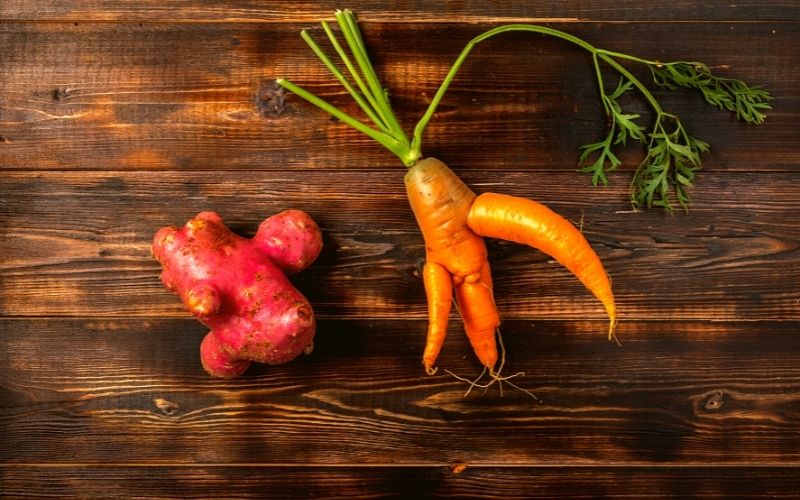
Challenges for CSA box shareholders
Convenience is highly valued in our society and supermarkets are a big cog in that system. CSA boxes, on the flip side, can be anything but convenient. Before you sign up for one, please consider the following challenges carefully to make an enlightened decision.
Risk of increased food waste. The biggest possible risk with CSA boxes, in my opinion, is food waste: filling the fridge with amazing (but somewhat unusual) farm-fresh produce on Wednesday, only to toss half of it into the compost bin on the following Tuesday to make room for the next box’s content. In addition to investing the money for the produce, shareholders must be prepared to cook their meals at home to make the most of it and process the unavoidable bumper crop of greens, beans, or tomatoes. Otherwise, it’s all for naught.
Adjustments to the meal planning and prep routine. I haven’t yet found a CSA box schedule that jives with my meal planning routine. In general, I plan my meals on Friday based on my Vegan Meal Plans. Then I shop for groceries on Saturday and do a food prep session on Sunday afternoon. That’s a super efficient system that works for us to decrease the time and effort spent thinking about “what’s for dinner?” The only downside is that it doesn’t jive really well with our CSA box subscription. In particular, I can’t count on CSA veggies to be part of my meal prep on the weekend. I also need to make some last-minute changes to my meal plan to accommodate what’s in the box (although thankfully the farm tends to give me notice of what’s coming about a week ahead). If I could find a CSA box from a farm I like that makes veggies available for pick up on Saturdays, that would resolve that problem for me.
A detour to pick up. My family has an intentionally local lifestyle: our home is a city apartment and we mostly travel by bicycle and on foot. Thus, for us, getting all of our vegetables at the grocery store that’s within walking distance is a lot more convenient than going to the urban farm offering a CSA box, or traveling to the drop-off spot of most other CSA programs available in our city. Pick up location needs not be a huge issue, but it’s something to factor in when shopping for CSA box programs.
Be welcoming of different vegetables. For the reasons described above, the veggies from CSA boxes are often different from the classics I stock up on every week. From an environmental and health perspective, that’s wonderful… but for the frazzled cook it can mean one more challenge to deal with (at the worst time of the day: before dinner). The good news though is that substitutions are almost always an option and that, with some practice, you’ll become excellent at improving balanced plant-based meals based on the veggies you have at hand. Just be prepared for a learning curve (and a little bit of googling as you try to identify that oddly shaped cauliflower). If you have highly-selective (a.k.a. picky) eaters at your table, you’ll want to give them ridiculously small pieces of the new veggie friend to get acquainted. (Psst! Taking them to the farm may help open their minds.)
Various skills and resources available to small farmers. Handing over a few hundreds of dollars to small farmers you don’t know can feel like a leap of faith… and sometimes it is. Not every CSA arrangement is piloted by experienced captains, and mistakes can be made that will impact the yield of crops and/or your experience as a consumer of fresh produce. This said, supermarket experience isn’t risk free either. I’m happy to edge my bets by spreading my produce money around.
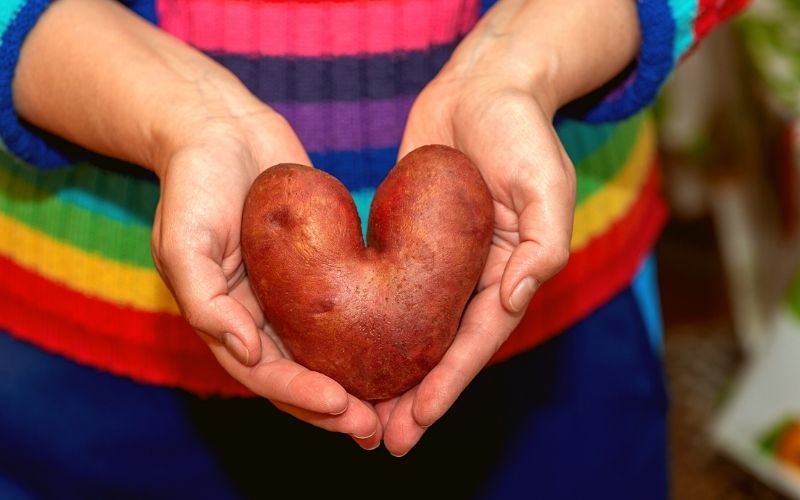
So: are CSA boxes worth it?
At the end of the day, I see CSA boxes not as an expense, but as an investment. When I subscribe to a CSA veggie box, I support local farmers and foster the resilience of the food-growing community around me.
Beyond the ethical veneer of such a statement, the reality is that it’s in my own selfish best interest to make sure there’s people who cultivate good soil near me. I commit to stepping out of my cooking comfort zone to embrace new vegetables that I haven’t cooked with before, as well as oddly-shaped ones that take a few extra minutes to prep. My microbiome loves it, and my taste expands to encompass more seasonal vegetables and fruits that deepen my connection to the world around me.
So, are CSA boxes worth it? I say yes – as long as we’re willing to invest in tweaking our habits and make space in our lives for a kind of agriculture that is more aware and respectful of our planet’s boundaries.

